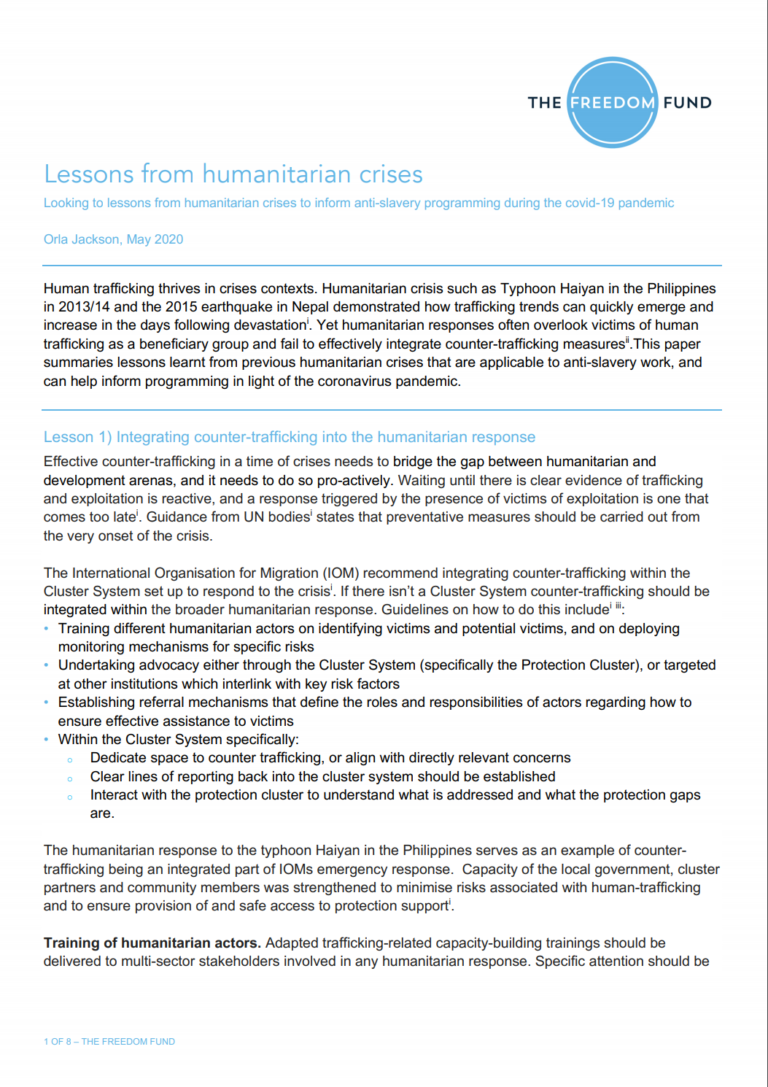Trafficking in Human Beings – Forced Criminal Activities and Begging
GuidanceTrafficking in human beings is defined as a situation whereby a person’s predicament is used to trap them in an exploitative situation. This can take various forms and occurs in different areas: • Exploitative employment relationships â€...Read More

